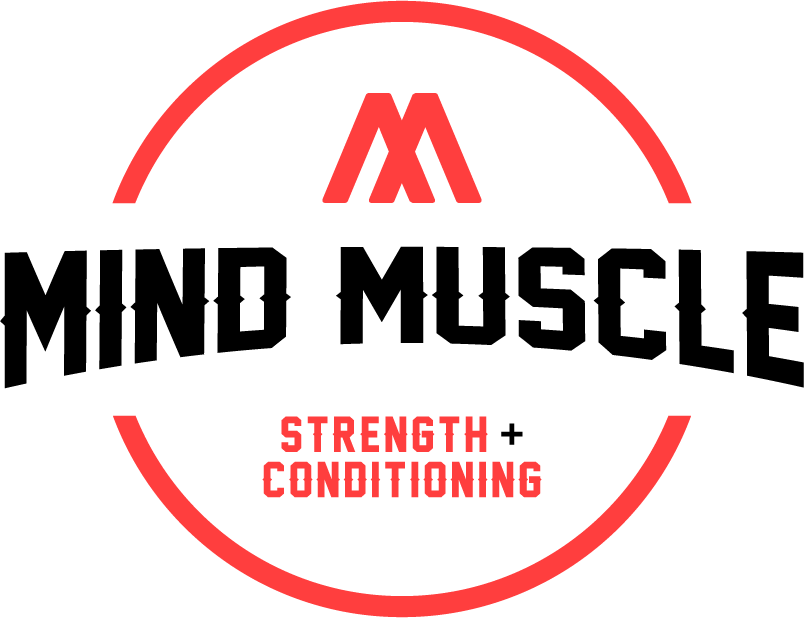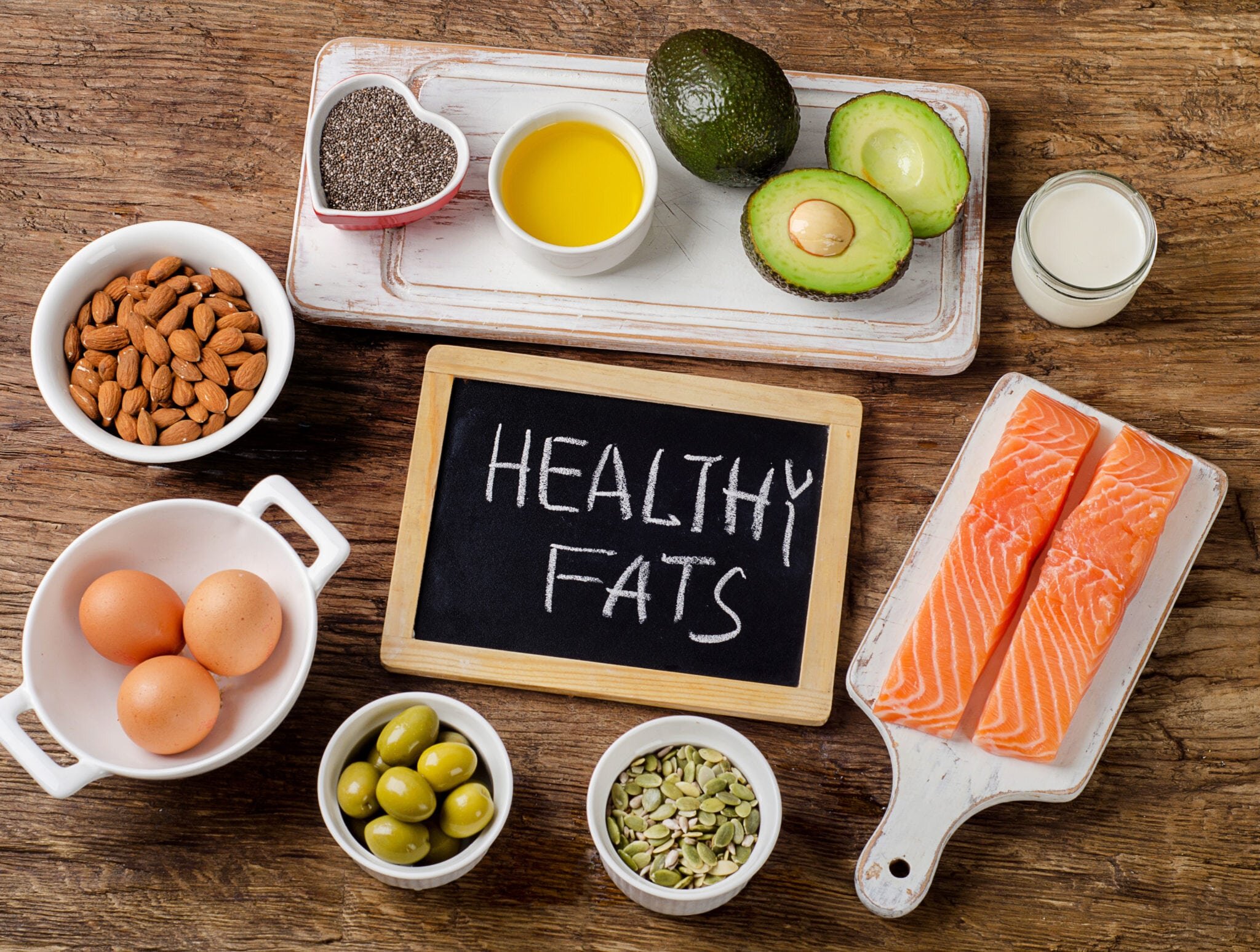Eat FAT to Lose FAT and Be Healthier
In previous posts I’ve looked at carbs and why they are not evil and protein and why it’s awesome but what about fat?
The message around fat is a confusing one.
For decades, we were told by professional health organisations and food companies that fat was the enemy, the "evil" force behind the obesity epidemic and heart disease.
Fat was high in calories and if we wanted to achieve a leaner body mass, consuming high-calorie foods simply didn’t make sense.
After further research, it became clear that this theory was bollocks.
In fact, it was found that regular consumption of healthy fat is crucial to overall health.
Fats are a primary energy source, and we must consume essential fatty acids to support the basic functions of our body.
Fats insulate our organs and serve as structural components of our cells and brain.
It also supports immune function, helps to regulate our body temperature, maintains healthy skin, hair and nails, and helps us absorb essential fat-soluble vitamins like vitamin A, D, E and K.
Other fats serve as a building block for creating essential hormones.
Fats are structural components of some of the most important substances in the body, including prostaglandins, hormone-like substances that regulate many of the body’s functions.
You need fats because they regulate the production of sex hormones, which explains why some teenage girls who are too lean experience delayed pubertal development and amenorrhea (lack of periods)
It’s also important to talk about cholesterol, since it plays an important role when it comes to our sex hormones.
The body is not able to produce certain sex hormones like progesterone, estrogen, and testosterone without cholesterol.
How we can get enough cholesterol is by consuming enough fat in our diets.
While many people live in fear of high cholesterol, low cholesterol can also cause a hormone imbalance.
It all comes down to eating the right types of fats to support healthy cholesterol (HDL) levels, and steering clear of the fats that are going to increase the bad type of cholesterol (LDL).
Without fat, you would die.
There are four types of fats: saturated, monounsaturated, polyunsaturated and trans fats.
Consuming healthy fats (Mono, Poly) is also correlated with long-term health benefits, such as decreased risk of heart disease.
While there are some diets that advocate for a high-fat diet (keto), the government recommends people get only 20 to 35 percent of their calories from fat.
So if you’re eating a 2,000-calorie-per-day diet, that breaks down to 400 to 700 calories from fat every day, and 44 to 78 grams of fat, depending on your body weight and activity level.
To learn more on calculating your calories and macros such as fat check out this post next.
As for saturated fat, the maximum amount of saturated fat you should be consuming from your diet is just 10 percent.
Saturated fat is the kind of fat found in butter, lard, ghee, fatty meats , cheese, certain meats (pork, fatty beef) and margarine.
Eating a diet high in saturated fat is associated with raised levels of non-HDL (bad) cholesterol. This is linked to an increased risk of heart and circulatory disease. That’s why we we want to keep saturated fat levels at max 10 percent of your daily fat intake..
Instead we want to increase our intake of unsaturated fats such as oily fish, nuts, or vegetable oils like rapeseed or sunflower oil, as the evidence shows they can help to reduce your risk of heart attack and stroke.
So be sure to keep an eye on what type of fat you’re eating.
On the note of keeping an eye on what type of fat you’re consuming, here’s an important news flash: Not all fats are created equal.
Fashionable Fats
Coconut oil is fashionable, it’s become so popular it’s everywhere.
People are using it because it’s been marketed as being a healthier fat than say butter.
But coconut oil is around 86% saturated fat, which is considerable more than butter at 54%.
The popularity is in part due to the saturated fatty acid in coconut oil called lauric acid.
Lauric acid is a medium-length long-chain fatty acid, or lipid, that makes up about half of the fatty acids within coconut oil.
Some studies suggest that lauric acid could aid in weight loss and protect against Alzheimer’s disease, among other benefits.
However, so far there are no quality studies to indicate that coconut oil has the health edge over other oils that we know are better for us like olive oil.
Like butter, coconut oil tastes great, so if you like it use it.
This isn’t to say you should never consume these fats ― you just shouldn’t have them very often.
Use unsaturated oils as your everyday choice instead.
The Bad Shit
Man Made Trans fats….They really are terrible,
I normally never label any food as good or bad, but trans fat are bad. There are naturally occurring trans fats such as CLA (Conjugate Linoleic Acid) but we won’t go into depth on those.
This is from Harvard’s University’s The Nutrition Source :
“It is a byproduct of a process called hydrogenation that is used to turn healthy oils into solids and to prevent them from becoming rancid. When vegetable oil is heated in the presence of hydrogen and a heavy-metal catalyst such as palladium, hydrogen atoms are added to the carbon chain. This turns oils into solids. It also makes healthy vegetable oils more like not-so-healthy saturated fats. On food label ingredient lists, this manufactured substance is typically listed as ‘partially hydrogenated oil.'”
Artificial trans fats may increase your risk of heart disease, Diabetes, Obesity and Stroke. Even just 2 percent of calories from trans fats daily can increase the risk of heart disease by 23 percent.
Clinical studies where people consumed trans fats instead of other fats or carbs experienced a significant increase in their LDL (bad) cholesterol without a corresponding rise in HDL (good) cholesterol, typically most fats will increase both HDL and LDL.
Other studies have shown that trans fats increase inflammation markers in the body. Excess inflammation is thought to be a primary cause of many chronic illnesses, such as heart disease, metabolic syndrome, diabetes, and arthritis.
There is a long list of potential issues related to man made trans fats.
The problem is they are everywhere in the modern western diet of processed and convenience foods, such as:
Crackers, biscuits, cookies, cakes, frozen pies, and other baked goods
Snack foods (such as some microwave popcorn)
Frozen pizza
Fast-food
Fried food
Vegetable shortenings and some stick margarines
Non dairy coffee creamer (something Americans love)
Ready-to-use frostings
So we ideally should try to minimise eating these types of foods in our diets.
To end here is a list of the healthier sources of fats to include in your daily diet for optimum health.
Olive Oil
Olives
Avocado
Oil Fish like Salmon
Nuts - Walnuts, Almonds, Pistachios, Peanuts
Nut Butters (natural not processed)
Whole Eggs
Dairy - Yoghurt, Milk, certain Cheeses
Canola Oil
Flax Seeds
Chia Seeds
Dark Chocolate
Lean Grass Fed Beef, Lean Pork
Tuna
Tofu
Edamame Beans
Sunflower Oil
Hi, I’m Aaron Schiavone, owner of Mind Muscle Personal Training. Over the past 5+ years I have helped women increase their self confidence, improve their relationship with food, improve their health, become stronger, fitter and happier.





